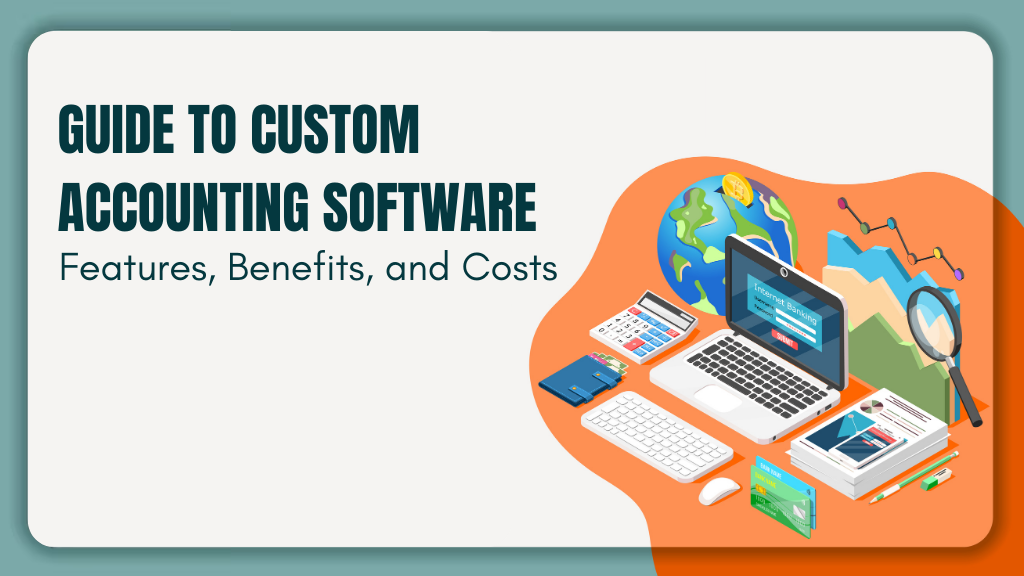Streamline Financial Operations: Guide to Accounting Software

In today’s fast-paced business world, efficient financial management is crucial. However, relying solely on manual bookkeeping methods can be time-consuming, prone to errors, and inefficient. Fortunately, accounting software offers a comprehensive solution to streamline financial processes. These robust applications provide a wide range of features and benefits that can revolutionize the way businesses handle their finances.
This comprehensive guide explores the top features and benefits of accounting software, enabling you to make an informed decision when selecting the right tool for your business needs.
I. Core Features of Accounting Software
General Ledger and Financial Reporting
Accounting software offers a centralized general ledger, which serves as the backbone of your financial records. This feature allows you to track and manage all financial transactions, including accounts receivable, accounts payable, and inventory. Additionally, it provides robust financial reporting capabilities, enabling you to generate accurate and up-to-date financial statements, such as income statements, balance sheets, and cash flow statements. These reports offer valuable insights into your business’s financial health, aiding in informed decision-making.
Accounts Payable and Receivable Management
Efficient accounts payable and receivable management is crucial for maintaining a healthy cash flow. Accounting software streamlines these processes by automating invoicing, tracking payments, and managing vendor and customer information. Furthermore, it enables you to set reminders for upcoming payments, reducing the risk of late fees or missed payments.
Bank Reconciliation and Credit Card Integration
Reconciling bank statements and credit card transactions can be a tedious and time-consuming task. However, accounting software simplifies this process by integrating directly with your bank accounts and credit cards. This feature automatically imports and categorizes transactions, saving you valuable time and reducing the potential for errors.
Inventory Management
For businesses that deal with physical products, inventory management is a critical aspect of financial operations. Accounting software provides robust inventory tracking capabilities, allowing you to monitor stock levels, set reorder points, and generate real-time reports. This feature helps prevent stockouts, minimize excess inventory, and optimize inventory levels for efficient cash flow management.
Multi-Currency Support
In today’s globalized business environment, the ability to handle multiple currencies is essential. Accounting software supports transactions in various currencies, automatically converting and recording them in your preferred currency. This feature streamlines international operations and ensures accurate financial reporting.
II. Advanced Features of Accounting Software
Project Management and Job Costing
For businesses that operate on a project or job-based model, accounting software offers project management and job costing features. These tools enable you to track expenses, labor costs, and profitability for each project or job, ensuring accurate billing and budget management.
Budgeting and Fore casting
Effective financial planning is crucial for business success. Accounting software provides budgeting and forecasting tools that allow you to create and manage budgets, track actual performance against budgeted figures, and generate forecasts based on historical data and trends. These features aid in proactive financial planning and informed decision-making.
Customizable Reporting and Dashboards
While accounting software offers standard financial reports, many solutions also provide customizable reporting and dashboard features. These tools enable you to create tailored reports and visualizations that cater to your specific business needs, providing a comprehensive and personalized view of your financial data.
Audit Trail and Compliance Management
Maintaining accurate financial records and adhering to regulatory compliance is essential for businesses of all sizes. Accounting software offers robust audit trail capabilities, tracking every transaction and change made within the system. Additionally, it supports compliance with various accounting standards and tax regulations, ensuring your business remains compliant and avoids potential penalties.
Integration with Third-Party Applications
Modern accounting software often integrates with a wide range of third-party applications, such as e-commerce platforms, customer relationship management (CRM) systems, and payroll software. These integrations enable seamless data sharing and streamline workflows, eliminating the need for manual data entry and reducing the risk of errors.
III. Benefits of Accounting Software
Increased Efficiency and Productivity
One of the primary benefits of accounting software is its ability to streamline financial processes and improve overall efficiency. By automating tedious tasks, such as data entry, invoicing, and reconciliations, software frees up valuable time for your team to focus on more strategic and revenue-generating activities.
Enhanced Accuracy and Data Integrity
Manual bookkeeping methods are prone to human errors, which can have significant consequences for your business’s financial health. Accounting software minimizes the risk of errors by automating calculations, enforcing data validation rules, and providing real-time access to accurate financial information.
Improved Cash Flow Management
Effective cash flow management is crucial for the success of any business. Accounting software provides real-time visibility into your cash position, enabling you to make informed decisions about expenses, investments, and financial planning. Furthermore, features like automated invoicing and payment reminders help ensure timely collection of receivables, improving your overall cash flow.
Scalability and Growth Support
As your business grows, your financial management needs will inevitably become more complex. Accounting software is designed to scale with your business, offering the flexibility and functionality to accommodate increasing transaction volumes, additional business units, and evolving reporting requirements.
Enhanced Financial Insights and Decision-Making
Accounting software provides access to a wealth of financial data and reporting capabilities. By leveraging these insights, you can make informed decisions about pricing strategies, cost management, resource allocation, and strategic investments, ultimately driving business growth and profitability.
Improved Collaboration and Data Accessibility
In today’s collaborative business environment, software facilitates secure data sharing and remote access. Multiple users can access and update financial information simultaneously, enabling seamless collaboration among teams and stakeholders. Additionally, cloud-based solutions allow access from anywhere, anytime, fostering flexibility and mobility.
Increased Security and Data Protection
Accounting software prioritizes data security and privacy, offering robust access controls, encryption, and backup capabilities. This ensures that your sensitive financial information remains protected from unauthorized access, data breaches, and potential losses.
Regulatory Compliance and Audit Preparedness
Complying with accounting standards, tax regulations, and audit requirements can be a daunting task. Accounting software simplifies this process by providing audit trails, compliance reporting, and automated updates to ensure adherence to the latest regulations and standards.
Better Customer and Vendor Relationships
By streamlining invoicing, payment tracking, and communication processes, accounting software enhances your relationships with customers and vendors. Prompt and accurate billing, timely payment reminders, and efficient dispute resolution contribute to improved customer satisfaction and stronger business partnerships.
Competitive Advantage
Implementing accounting software can provide a significant competitive advantage in your industry. By optimizing financial processes, reducing operational costs, and gaining valuable insights, you can make more informed decisions, respond quickly to market changes, and outperform competitors who rely on outdated manual methods.
Conclusion
In the ever-evolving business landscape, accounting software has become an indispensable tool for organizations of all sizes and industries. By leveraging its powerful features and benefits, businesses can streamline financial processes, enhance accuracy, improve cash flow management, and gain valuable insights for informed decision-making.
Whether you are a small startup or a large enterprise, investing in robust software can revolutionize your financial operations, driving efficiency, growth, and long-term success. Embrace the power of accounting software and unlock the full potential of your business finances.









